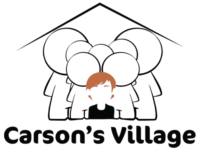Losing a life partner can be a very traumatic experience and result in heavy feelings of grief, sadness, and depression. Finding ways to cope and support oneself after losing a partner is essential to ensuring your own personal well-being and continuing in their memory.
How to cope
Grief can be very challenging, and it often might feel like there is no end in sight. The following are ways you can try to mitigate the feelings of grief and heartbreak.
- Seek out support from a qualified counselor. Searching for one-on-one therapeutic options is a way to seek treatment for the feelings of grief and work through the bereavement process.
- Take care of yourself. Often, it can feel hard to get back into a healthy routine absent a partner. However, continuing to nourish yourself through good meals, exercise, and activities can aid in feelings of helplessness.
- Seek support from friends. Often, connecting deeper with your support system can help mitigate the isolating effects of losing a loved one. Creating or tuning into a community may help the bereavement process feel less intimidating and scary as those around you support you.
- Try to keep busy. Finding yourself alone more than you used to be can be a very challenging aspect of widowhood. Trying to find new hobbies, events, and activities that you like can help in the process of finding a new normal.
Grief can be an entirely overwhelming feeling, but it is important to keep in mind that it often gets better with time. Every person will deal with loss on a different timeline, and there is no set time anyone should be expected to “move on”. Focusing on how to help yourself in this difficult time is essential to finding the peace you need.
Support groups
Texas:
Widows support group (widowedpersonsdallas.org)
Home | Widowed Persons Service | Fort Worth TX (wpstc.org)
National:
Support Groups – National Widowers’ Organization
W Connection – Widows helping Widows rebuild their lives – W Connection (widowsconnection.org)
Grief Resource Site For Widows- The Sisterhood of Widows
Further resources:
The American Association of Retired Persons (AARP)
http://www.aarp.org/
Mental Health America
http://www.nmha.org/
